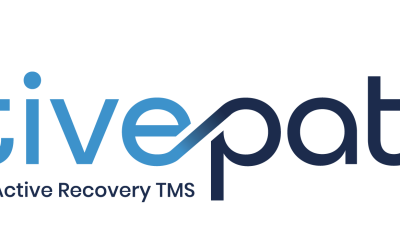Oral antidepressants are a type of mental health treatment. They’re often used to improve the symptoms of depression. Approximately 1 out of every 10 people in the U.S. are prescribed antidepressant medication. This type of treatment can be helpful for many people, but it often takes some time to start working. Have you recently been prescribed antidepressants? Are you wondering how long it takes for antidepressants to work? Here’s what you should know about time frames, how to know it’s really working, and alternative treatments.
How do I know if my antidepressants are working?
Antidepressants won’t cure your depression. However, they are capable of improving your depression symptoms so that your everyday activities can be completed with greater ease. It’s likely that your antidepressants are working if you notice the following:
- Improvements in your mood — One way that you can tell your antidepressants are working is if you notice that your daily moods have improved. You may find that you experience fewer episodes of low mood.
- Improvements in your sense of well-being — Another indicator that your antidepressants are working is if you notice a change in your well-being. Many people on antidepressants feel greater well-being than before starting their treatment.
- Increases in your energy levels — Many people who take antidepressants feel renewed energy. They may find it easier to perform daily activities and feel less tired.
- Increases in hopefulness and enthusiasm toward the future — Many people who benefit from antidepressants also experience a renewed interest in their own futures. They begin to make goals for themselves and may look toward the future with hope.
What should I do if I think my antidepressants aren’t working?
Antidepressants typically start to work somewhere around four weeks after they are first started. After four weeks of taking them, most healthcare providers will want you to report back to them if you’ve noticed any changes in your depression symptoms. It’s typically at the four-week mark that most professionals will determine if you may benefit from dosage adjustments.
Suppose your antidepressant medication doesn’t seem to improve your symptoms after around four weeks. In that case, your healthcare provider may recommend a different type of antidepressant and even a different type of treatment altogether. If you believe that your antidepressants are not working after taking them as instructed by your provider for at least four weeks, you shouldn’t hesitate to speak with your provider.
Antidepressants aren’t effective at providing symptom relief for everyone. Most healthcare providers will be open to discussing adjustments to your treatment plan. If you don’t think your antidepressants are working, you may benefit from other treatment modalities, including transcranial magnetic stimulation (TMS) therapy and esketamine (Spravato) treatment.
TMS therapy may improve treatment-resistant depression, anxious depression and OCD. It’s a noninvasive, non-medication treatment option. During sessions, pulses of magnetic energy are sent to targeted areas of the brain involved in mood regulation to decrease depression symptoms. For people who don’t respond well to antidepressants, TMS therapy may be helpful.
Another alternative treatment option is esketamine therapy. Esketamine (also known by its brand name, Spravato) is an FDA-approved nasal spray augmentation treatment. It should be administered in conjunction with antidepressants. It’s used to treat people with treatment-resistant depression. Treatment sessions of Spravato are administered over eight weeks. During the first four weeks, esketamine treatments are given twice a week. Over the following four weeks, treatment is administered weekly. By the eighth week, a medical care provider will determine the next best steps. Every esketamine session involves an observation window of two hours. After two hours, the patient can be driven home by a trusted individual.
Active Path Mental Health can treat your treatment-resistant depression symptoms
We understand how significant of an impact depression can have on your life, especially if it’s the treatment-resistant type. Fortunately, treatment from our Active Path Mental Health team can help. We aim to help each of our patients find relief from their symptoms.
Active Path Mental Health has multiple locations in both Oregon and Washington. The team members at each of our locations are dedicated to helping patients. We’ll do our best to help you improve your treatment-resistant depression. But don’t just take it from us, take it from our patient reviews.
Contact our team today for more information or to schedule an initial appointment.





